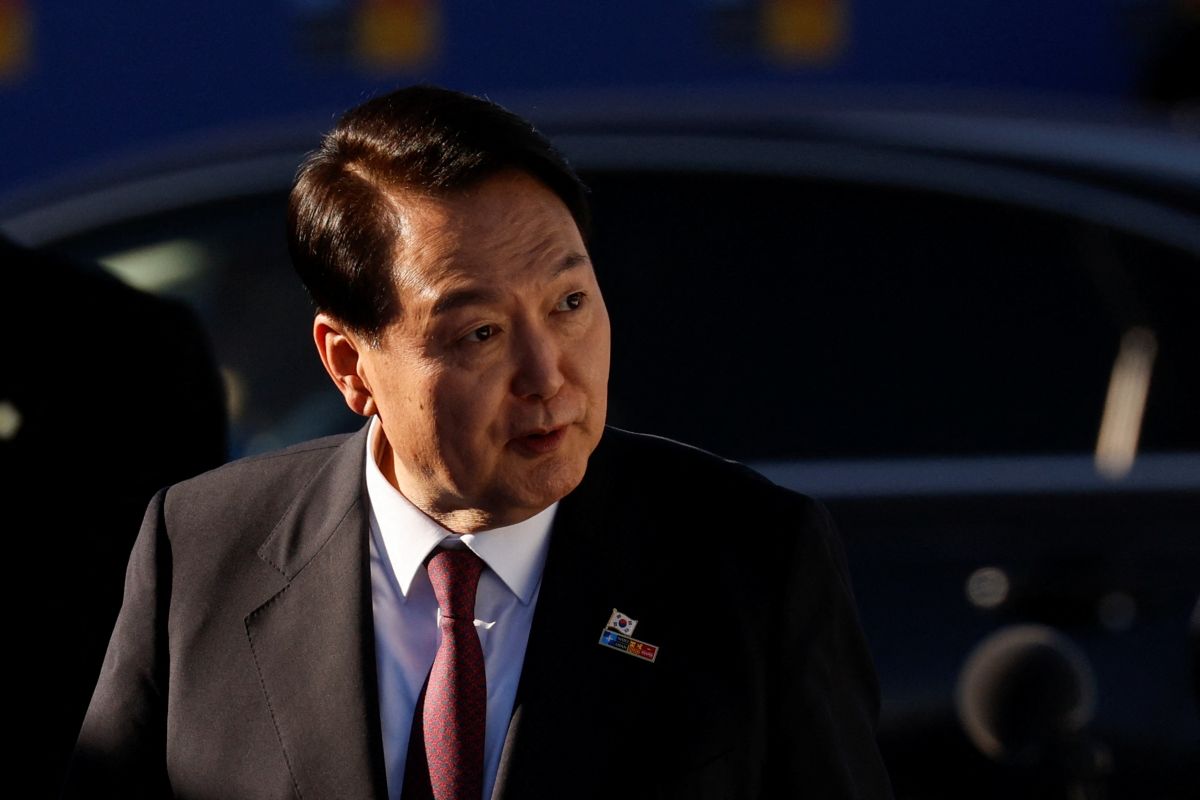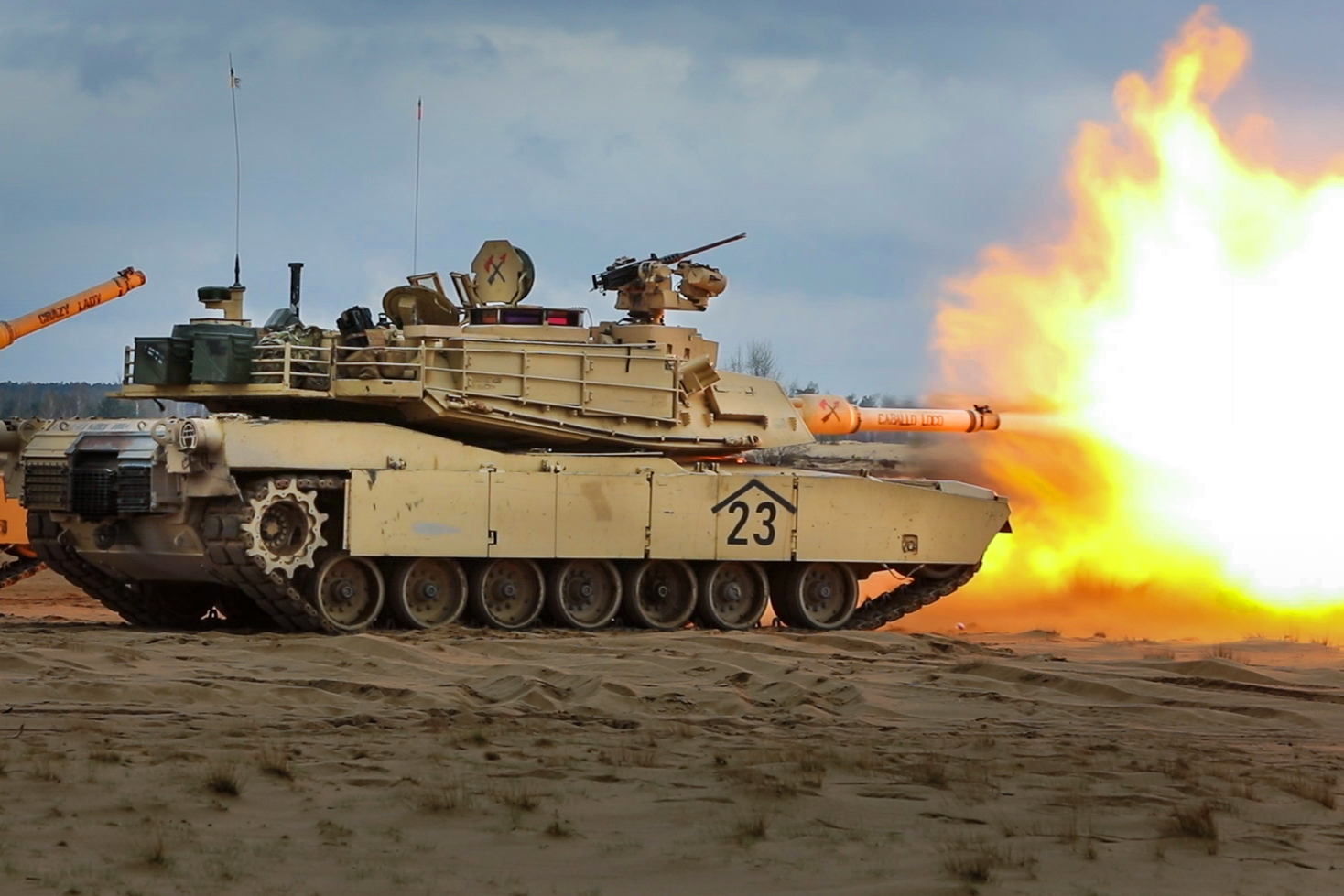South Korea-NATO Cooperation Intensifies
The participation of South Korean President Yoon Suk-yeol at the June NATO summit was an element of the Alliance’s deepening cooperation with its Asia-Pacific partners. Strengthening ties with NATO and its member states in areas such as cybersecurity and the defence industry serves to raise South Korea’s position as an actor contributing to international security. The country’s increasingly clear stand on the side of the U.S. in the rivalry with China and Russia, which are actively undermining the current international order, may coarsen its relationship with China and result in increasing tensions on the Korean Peninsula.
 SUSANA VERA/Reuters/Forum
SUSANA VERA/Reuters/Forum
Prior South Korea-NATO Cooperation
South Korea is one of nine NATO “global partners”, including four from the Asia-Pacific region (alongside Australia, Japan, and New Zealand). In 2005, South Korea and NATO initiated a political dialogue, and in 2012 signed an Individual Partnership and Cooperation Programme, which was renewed in 2019. In 2010-2013, South Korea supported NATO’s ISAF mission in Afghanistan by engaging civilian-military personnel in the reconstruction of Parwan Province, and in 2009-2016 South Korean naval forces participated in NATO’s anti-piracy operation off the Horn of Africa. South Korea’s accession to NATO’s Partnership Interoperability Initiative in 2014 served to develop the armed forces’ ability to cooperate in crisis-management operations. South Korean researchers and experts have been also participating in NATO’s Science for Peace and Security Programme in projects related to counterterrorism, cyber defence and chemical, biological, radiological and nuclear (CBRN) defence.
South Korea and NATO also conduct regular political dialogue on issues related to international security. These include, in particular, non-proliferation, important in the context of the development of North Korea’s nuclear programme, and changes in the international order resulting from China’s growing position in it. An expression of the deepening of political cooperation was the first-ever participation of the South Korean foreign minister, together with the ministers of Australia, Japan, and New Zealand, in a meeting of the NATO chiefs of diplomacy in December 2020. In June this year, President Yoon participated in the Alliance summit in Madrid, and South Korea announced the establishment of a diplomatic mission at NATO headquarters.
South Korea’s Motivations
Intensifying contact with NATO is intended to strengthen South Korea’s international position. It fits into the assumptions of the Yoon administration, according to which South Korea should play a greater role globally, basing its foreign policy on cooperation with countries sharing values such as liberal democracy, market economy, and human rights. Cooperation and dialogue with NATO allow South Korea to strengthen its alliance with the U.S., which are in favour of developing NATO’s ties with Asian partners in the context of China’s aggressive policy, and creates the opportunity to deepen security cooperation with European countries involved in the Indo-Pacific region (France, the UK, the Netherlands, Germany).
South Korea counts on finding common points with NATO in the policy towards North Korea and China. During the Madrid summit, Yoon stressed the need to denuclearise the North, whose nuclear and missile programmes violate international law and endanger the international community. NATO shares this view, which is confirmed by the mention of North Korea in the new Alliance strategy in the part concerning threats resulting from the potential use of weapons of mass destruction. The document also identifies China as a challenge to the interests, security, and values of NATO and the rules-based international order. This is close to the assessment of South Korean society, which translates into its attitude towards China: in a Pew Research Center survey from June, as many as 80% of Koreans had an unfavourable view of China. By comparison, 89% of those polled were favourable to the United States. Yoon’s administration, aware of the public’s mood and the Chinese challenges to South Korea’s security, is deepening its cooperation with the U.S.
Opportunities and Limitations
One of the areas of enhanced cooperation between South Korea and NATO can be counteracting and responding to cyberthreats from China, North Korea, and Russia. South Korea in May joined the NATO Cooperative Cyber Defence Centre of Excellence and will take part in NATO cybersecurity exercises starting next year. The cooperation of the defence industries of South Korea and NATO member states is also promising. In 2017-2021, almost all South Korean imports of arms and military technology came from NATO countries (the U.S. accounted for 63%, Germany, 27%, France, 8%, the UK, 1.5%). South Korea is becoming an increasingly important supplier of military equipment to Alliance countries, where around 24% of South Korean arms exports went in 2017-2021 (the UK accounted for 14%, Norway, 6%, Poland, 3%, Turkey and Estonia, under 1% each). In the face of Russia’s invasion of Ukraine, NATO countries have increased their interests in the South Korean arms industry’s offer, characterised by compatibility with NATO standards and openness to industrial cooperation. South Korea and NATO also can cooperate in the development and implementation of emerging and disruptive technologies, and expand existing cooperation in non-military areas, including climate change and resilience of supply chains.
The challenge for cooperation with NATO is South Korea’s reluctance to identify China as a threat to its interests and adopt a more decisive policy towards China, for fear of its reaction both in the economic field (as exemplified by the restrictions following the deployment of the THAAD anti-missile defence system in 2016-2017), and in the political and security sphere (further political support for North Korea, intensification of cyberattacks ). Another limitation may be the marginal interest of the South Korean political elite in the situation in Ukraine, which translates into limited support for the country compared to many NATO countries. It focuses on humanitarian aid and remains reluctant to ship arms to Ukraine. An indirect form of support may be the sale of weapons or ammunition to NATO countries to replenish stocks given to Ukraine. Unlike NATO, South Korea does not treat Russia as a threat to its security. However, South Korea has ceased to see it as a partner, especially after it was placed on Russia’s unfriendly countries list.
On the other hand, NATO has limited political capabilities to improve the situation on the Korean Peninsula. In recent years, the Alliance has only condemned the North’s military developments and symbolically supported the South’s inter-Korean initiatives. European NATO countries suspended diplomatic activity in North Korea due to restrictions introduced in that country during the pandemic. In addition, the upcoming accession to NATO of Sweden, which had been an intermediary in talks between the U.S. and North Korea, may mean that it will no longer be perceived by the North as credible in this role.
Conclusions and Perspectives
The similarity of South Korea’s perceived challenges and threats related to the policies of China and Russia, as well as the cooperation between those two countries, has prompted NATO to deepen relations with the state as one of its “global partners”. This reflects the growing interdependence of the Euro-Atlantic and Indo-Pacific theatres of operation. At the same time, South Korea is realistic in its assessments of the scope of NATO support in the event of a crisis on the Korean Peninsula.
South Korea’s announcement that it will strengthen cooperation with NATO proves that the country politically supports the U.S. in its rivalry with China and Russia, states that seek to undermine the international order and its principles. However, rapprochement with NATO may exacerbate South Korean-Chinese relations and foster further cooperation between China, Russia, and North Korea, which will complicate the security situation on the Korean Peninsula. The prospect of support from China and Russia, including in the UN Security Council, may encourage the North to conduct further nuclear, missile, and conventional weapons tests. Therefore, South Korea will avoid openly confrontational policies towards China and Russia. This was confirmed by Yoon’s speech during the NATO summit when he did not mention these states by name when speaking of threats to universal values.
The framework for further cooperation between South Korea with NATO will be outlined by the end of the year in an updated partnership document. The cooperation will likely include, in particular, cybersecurity, technological cooperation, and strengthening supply chains. For the countries of NATO’s Eastern Flank, the prospect of cooperation with the South Korean defence industry is particularly interesting. An example of agreements between them is one concluded by Poland to acquire 1,000 tanks, 672 self-propelled howitzers, and 48 aircraft, which shows that South Korean equipment can contribute to the modernisation of Alliance armed forces, necessary in response to Russia’s revisionism. The technology transfer included in the agreements is intended to strengthen the potential of the Polish defence industry, which may in turn lead to offers to other countries in the region in the coming years. However, the further development of defence cooperation with Poland and other Central European countries will require greater interest on South Korea’s part in the situation in Eastern Europe, namely Ukraine.



